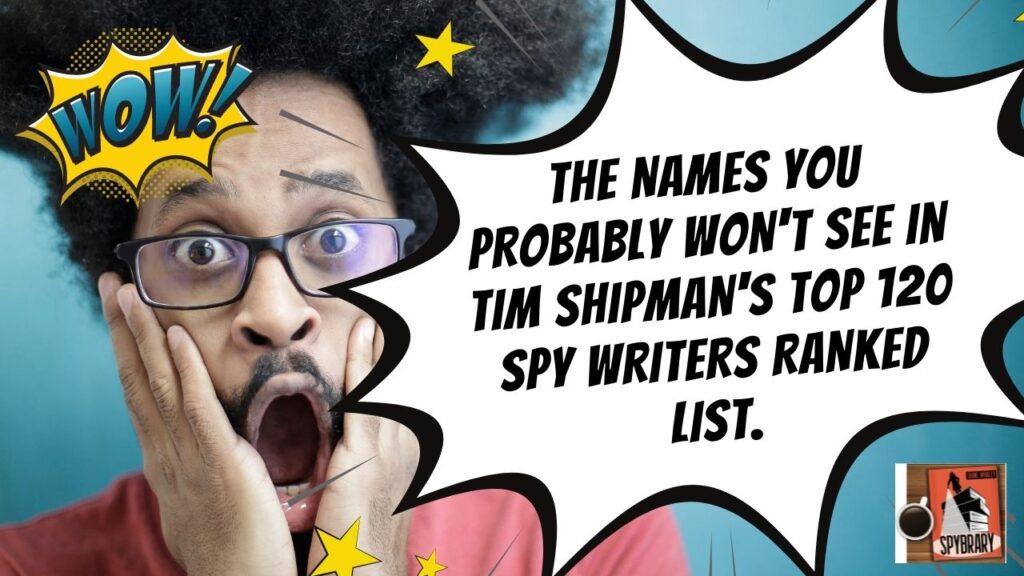
Tim Shipman is sharing his 120 top spy writers in ranking order, for Spybrary. He shared the following message as he begins the countdown from 100.
Before we get into the Top 100, I want to mention a few spy authors who likely won’t be appearing, primarily because I have not read them, or read enough by them.
Some of them are very near the start of my to-be-read (TBR) pile (this is a metaphysical pile, it exists in my head, not on my bedside table. It’s possible I’ll get around to them during the next month, and I’m going to give myself a few wild cards to drop people into the list If I’m blown away.
Top of that TBR list at the moment is newcomer David McCloskey’s book Damascus Station, which is getting rave reviews and promises tradecraft on a level not seen since Red Sparrow. Not far behind are The Frenchman by Jack Beaumont and American Spy by Lauren Wilkinson.
Other contemporary authors, I really want to read include James Wolff, whose first two books look right up my street, Alex Gerlis (who has penned two successful series – one of my worst admissions), Chris Pavone, Oliver Harris, **Rory Clements **and Peter Hanington.
Two others, Joe Weisberg (An Ordinary Spy) and Karen Cleveland (Need to Know) are both former Spooks and have had good reviews.
I also want to try, Charlotte Philby, Kate Atkinson, Lara Prescott, Mara Timon and Kate Quinn, all of whom have done a lot to popularise the “spychological” thriller aimed at women readers. And yes, I hope I’ve just invented that term. I’ve read of one by Pam Jenoff but she didn’t quite make the cut.
While I’ve read most of the classic spy authors, there are a whole load of classic spy books I have not read, which I am confident would make it into this list on merit. My greatest shame is that I have still not read The Secret Agent by Joseph Conrad or Ashenden by W. Somerset Maugham, both of which are cornerstones of the genre.
Many of the others are one hit wonders. Top of this list is undoubtedly The Kremlin Letter by Noel Behn with A Dandy in Aspic by Derek Marlowe, A Peregrine Spy by Edmund P. Murray and Checkpoint by Charles W. Thayer close behind.
Other authors from times past I would like to try to include George Markstein (who was also script editor of The Prisoner as well as writing a truck load of spy thrillers), Brian Cleeve, Francis Bennett (who wrote a trilogy of intelligent spy novels which get strong reviews on GoodReads), Desmond Skirrow, Alexander Wilson and George MacBeth. Richard Llewellyn, best known for How Green Was My Valley, is another literary novelist who has dabbled and his The End of the Rug is well regarded by people like Mike Ripley, perhaps the best read of thriller reviewers in the UK.
The recent release of The House of Fear by Ibn-e Safi, an Indian writer who has penned more than 100 spy thrillers, is exciting. I also need to try works by Bernard Besson, a French spy writer which has also been translated. The presence on a very good list by Jeremy Duns of forgotten spy novels of Mills, by Irish author Manning O’Brine, convinces me I would enjoy that too.
My other biggest gap, classics wise, is Dennis Wheatley, who wrote a series of wartime espionage pot boilers about Gregory Sallust and the Roger Brook series set during the French revolutionary period. I guess I’ve been a bit put off by the way the supernatural creeps into some of these books.
The recent TV series has convinced me that not reading Luke Jennings’ Codename Villanelle novels is a mistake. Jennings also helped out Stella Rimington with her successful series of spy thrillers based on her inside knowledge as the former director general of MI5.
For similar reasons I would like to try books (particularly Ultimatum) by Frank Gardner, the BBC’s security editor. Among fellow Spybrarians, I’m intrigued to try works by Merle Nygate, David Holman, August Thomas, Steven England, CG Faulkner, Andy Onyx, Rossa McPhillips, James Stejskal, CP Bennison and Antony Johnston.
As I’ve said, the US special forces action hero genre is underrepresented here, so you won’t find Lee Child, Brad Thor, and Mark Greaney.
Growing up I was a huge fan of Clive Cussler, but his books really aren’t spy novels in any meaningful sense, so he’s given up his potential top 40 slot here for someone who is properly part of the genre. There are a few marginal calls, but in truth I couldn’t justify him. But if you just want a fun, exciting thriller, it doesn’t get much better than Raise the Titanic. Like many films of books, the movie was a disaster (“It would have been cheaper to lower the Atlantic,” said producer Lew Grade).
From the world of Bond, it embarrasses me to say that I have never read any of our own Raymond Benson’s continuation novels, which receive plaudits for a return to a grittier style after the high camp of John Gardner’s later efforts. In my defence I’ve collected all the first editions, I just need to sit down with them. The same goes for Jeffrey Deaver’s Carte Blanche.
Kate Westbrook’s three Moneypenny books are also high on my list of omissions that need to be rectified soon. Some think them the best of all the continuation novels. There are many Bond knockoffs and spoofs which it is incumbent on Bondistas to read, including Alligator by the writers of the Harvard Lampoon and Sol Weinstein’s quartet of “Israel Bond” books featuring Agent Oy-Oy-Seven: Loxfinger, Matzohball In the Secret Service of His Majesty the Queen, and You Only Live Until You Die.
Then there are 20 novels featuring the character Trevor Anderson, codenamed “0008”, which author William Knoles published under the pseudonym Clyde Allison. Donald Westlake, the hugely accomplished crime writer also penned a spoof spy novel, A Spy in the Ointment.
For Bond collectors, the holy grail in this regard is to find the English translation paperback of Avakoum Zahov vs. 07 in which the Bulgarian author Andrei Gulyashki got his own back for the entire Eastern bloc as the communist hero outwits the British spy, unnamed after a legal threat from the Fleming estate. Expect to pay £300 if you can find even a tattered copy.
Others just didn’t make it on definitions. Don Winslow’s border trilogy set around the Mexican drug trade is one of the greatest achievements in thriller writing of modern times, but even though the main character is with the FBI, it’s just not really a spy vibe as we know and love it.
Similarly, Michael Dobbs, best known for his political thrillers, also penned four books featuring Harry Jones, which have some spy elements. The first of them, The Lords’ Day, which sees terrorists seize parliament on the day of the state opening, is crying out to be a film. But again, he’s not really a spy writer.
I also enjoyed Luke McCallin’s thrillers, starting with The Man From Berlin, but they are wartime detective novels, rather than spy books (forgive me when I take the opposite view about Philip Kerr!)
So that’s another 62 names just there who have something to offer and there are hundreds more who are worth delving into. I’d be really glad if you could all make other suggestions so we can get this nearer to 80 here, to make a top 200 in total.
Anyway, here goes with the Top 100 as it now stands:
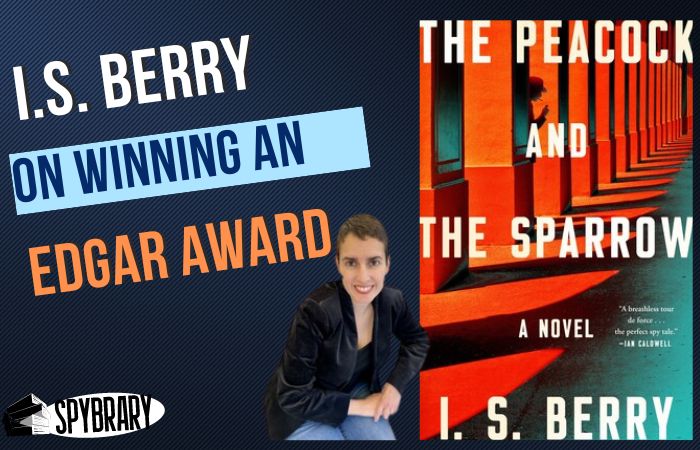


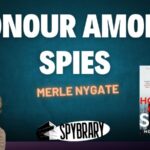
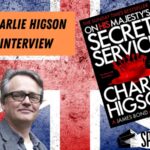
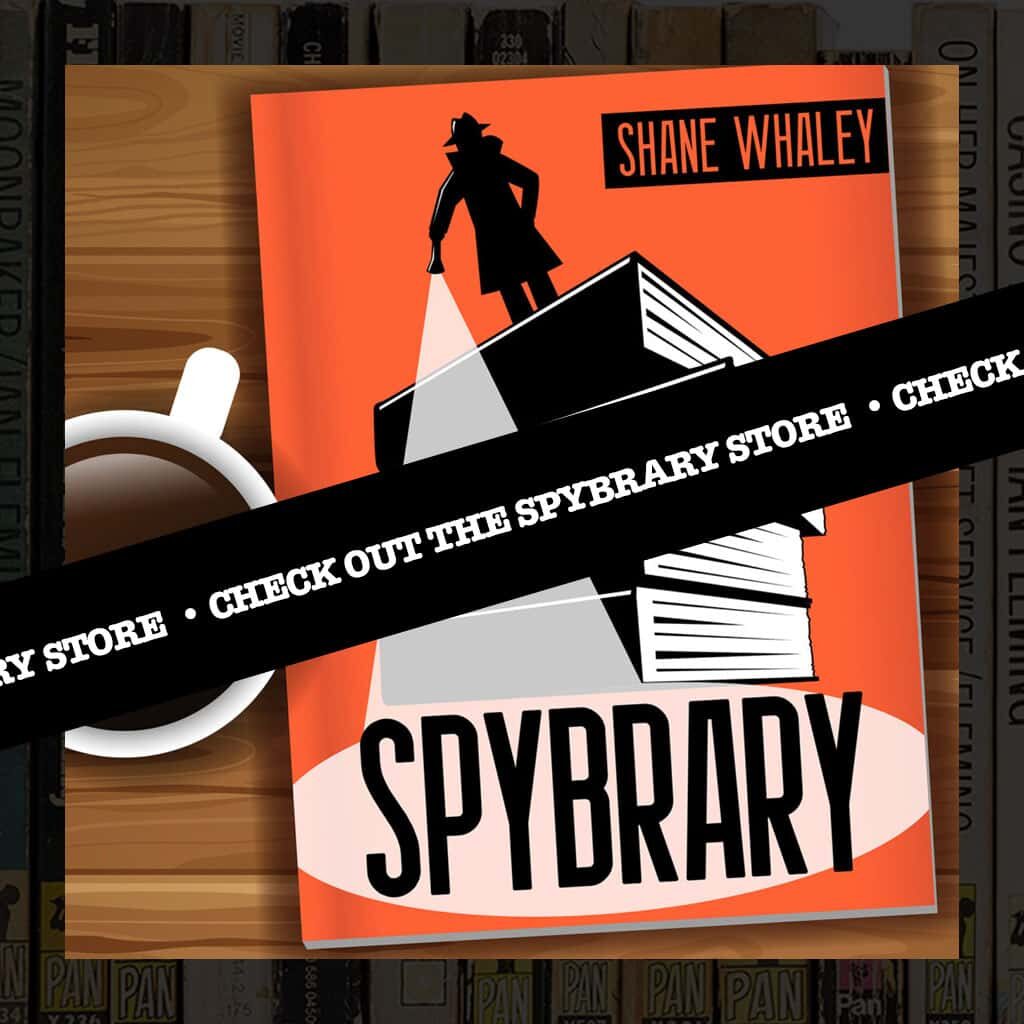
[…] shares the spy writers who will likely not make his top 120 ranking of spy […]